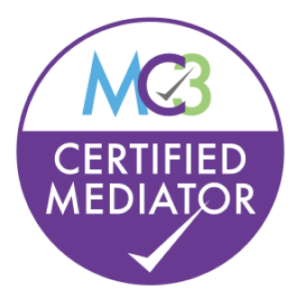What is a Transmutation?
A “transmutation” is a postmarital transaction between spouses by which the character of real or personal property is changed or converted in one of the following three ways: separate property into community property, community property into separate property, or the separate property of one spouse into the separate property of the other.
Transmutation is a crucial concept in California family law and trusts and estates law and strict compliance with California law is necessary to ensure that such a change is legally effective. As an attorney practicing in this area, understanding the legal requirements and best practices for effectuating a transmutation is essential.
What is Required for an Effective Transmutation?
Under California Family Code Section 852, a transmutation of real or personal property between spouses must meet specific legal requirements to be valid. The key elements include:
- A Written Agreement – A transmutation must be in writing to be enforceable. Oral agreements or informal understandings are insufficient under California law.
- An Express Declaration – The writing must contain explicit language stating that the character of the property is being changed. A mere reference to the transfer of an asset or joint ownership is not enough.
- Signed by the Spouse Whose Interest is Adversely Affected – The spouse giving up his/her interest (or consenting to the change) must sign the written document for the transmutation to be effective.
What are the Best Practices for Effectuating a Transmutation?
To ensure compliance with the law and avoid potential challenges, family law and trusts and estates attorneys should take the following steps when assisting clients with transmutations:
- Drafting a Clear and Unambiguous Written Agreement
The transmutation agreement should explicitly state the change in property character. Phrases such as “Spouse A hereby transmits and converts their separate property interest in [property description] into community property” provide clarity and reduce ambiguity. - Proper Documentation and Recordkeeping
For real property transmutations, the execution and recording of a deed (for example, a grant deed or interspousal transfer deed) reflecting the change is crucial. Additionally, maintaining well-documented agreements in estate planning files ensures that the transmutation can be substantiated if challenged in court. - Avoid Implied or Unintended Transmutations
Spouses often make financial and property decisions informally, which can lead to disputes regarding whether a transmutation occurred. Attorneys should educate clients on the necessity of formal documentation to prevent unintended consequences. - Incorporate Transmutation Provisions into Estate Plans
When drafting trusts and estate plans, attorneys should consider including specific language addressing any intended transmutations. This ensures consistency in estate planning documents and prevents conflicts between trust provisions and property characterization - Address Potential Undue Influence Issues
Given the fiduciary relationship between spouses, a transmutation can sometimes raise concerns of undue influence or coercion. To mitigate this risk, attorneys should ensure that both spouses fully understand the legal and financial implications of the transmutation. As the attorney, consider recommending independent legal counsel for each spouse.
If a spouse refuses to be represented by independent legal counsel, the transmutation agreement should include a provision that each spouse acknowledges that they are informed of the importance of seeking and was provided the opportunity to seek the representation and advice of separate legal counsel and, in the event that any spouse to the transmutation agreement elects to proceed without separate legal counsel, they do so at their own risk and peril and acknowledge that they have sufficient knowledge, information, and skill to enter into transactions of this type without separate representation.
- Consider Whether to Add a Family Code Section 2640 Waiver
Under Family Code Section 2640, a spouse can seek reimbursement for separate property contributions to the acquisition of community property, unless a written waiver exists or a writing with the effect of a waiver is signed. The reimbursement is limited to the contributions, without interest or adjustment for monetary value changes, and cannot exceed the property’s net value at the time of division.
How Do Reimbursement Protections Under Family Code Section 2640 Affect a Transmutation?
California Family Code Section 2640 provides protections for a spouse’s separate property contributions to the acquisition of community property. Specifically, it allows a spouse who contributed separate property funds (such as money used for a down payment on a home) to be reimbursed for their separate property contribution upon divorce, unless a valid waiver exists. Therefore, if a spouse contributed separate property money towards a down payment on a home and wishes to transmute this separate property interest in the community property home to their spouse, the transmuting spouse must waive their right to reimbursement when making the transmutation, otherwise, in the event of a divorce, the transmuting spouse will be entitled to a reimbursement of their separate property downpayment contribution.
How Does a Spouse Waive their Right to Reimbursement Under Family Code Section 2640?
A spouse may waive their right to reimbursement under Section 2640 through a properly executed agreement (for example, a properly executed transmutation agreement). The waiver requires a voluntary act, knowingly done, with sufficient awareness of the relevant circumstances and likely consequences. (In re Marriage of Perkal (1988) 203 Cal.App.3d 1198, 1203). Without a clear and valid waiver, the contributing spouse retains a claim to the amount of their separate property contribution upon dissolution of marriage.
Please note that a transmutation that converts separate property to community property does not automatically waive a spouse’s reimbursement rights under Section 2640. If a spouse wishes to waive their right to reimbursement, the transmutation agreement must include specific language addressing this waiver to ensure clarity and legal enforceability. Otherwise, a contributing spouse may still assert their reimbursement rights upon dissolution. A deed of transfer alone is not sufficient under Marriage of Fabian (1986) 41 Cal. 3d 440 to constitute a waiver. An annotation on a deed of transfer that the transfer was a gift is also not sufficient under Marriage of Perkal (1988) 203 Cal. App. 3d 1198. A note and deed of trust is not sufficient under Marriage of Lange (2002) 102 Cal. App. 4th 360. And a prenuptial agreement with provisions that a separate property residence would be deemed community property after marriage was also not a sufficient waiver of rights of reimbursement under Marriage of Carpenter (2002) 100 Cal. App. 4th 424.
To ensure enforceability, any waiver of reimbursement rights under Section 2640 should:
- Be in writing and signed by the waiving spouse;
- Contain clear and explicit language acknowledging that the spouse understands and agrees to waive their statutory right to reimbursement under Family Code Section 2640; and
- Be voluntary and free of coercion, ideally with each spouse having the opportunity to consult independent legal counsel.
What are the Consequences of Failing to Comply with California Family Code Section 852 or 2640?
Failure to comply with California Family Code Section 852 can result in a transmutation being deemed invalid. This could lead to unintended property distribution upon death or divorce of a spouse and may result in costly litigation. Moreover, an invalid transmutation could impact estate tax planning strategies and community property rights, underscoring the importance of proper legal execution. Additionally, failing to properly address Section 2640 reimbursement rights in a transmutation agreement could create disputes over separate property contributions upon divorce.
Conclusion
Properly effectuating a transmutation under California law requires careful attention to statutory requirements, precise drafting, and strategic estate planning. As a family law or trusts and estates attorney, ensuring that transmutations comply with California Family Code Sections 852 and 2640 not only protects clients’ interests but also prevents potential legal disputes down the road. By adhering to best practices and maintaining thorough documentation, attorneys can help clients achieve their property ownership goals with legal certainty and peace of mind.
























